Top 7 Programming Languages To Learn In 2024
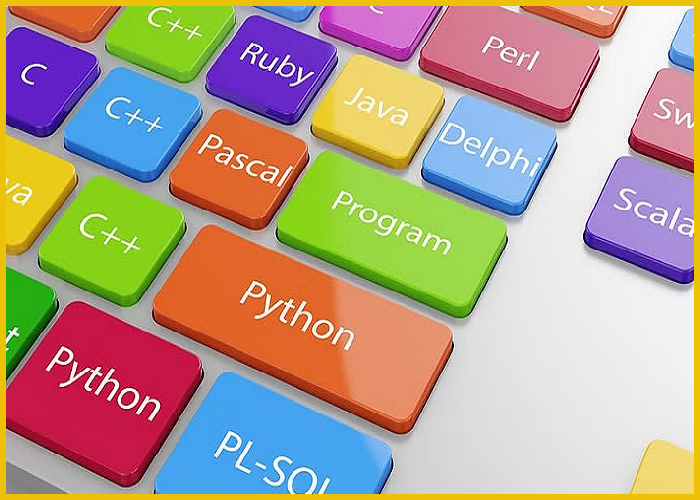
In the vast universe of programming languages, choosing the right ones to learn can be akin to navigating a labyrinth. Each language has its unique features, strengths, and applications, making the selection process crucial for both budding developers and seasoned coders.
Whether you’re aiming to kickstart your career or expand your repertoire, understanding which languages are most relevant in 2024 can help you make informed decisions.
To simplify this journey, let’s embark on a guided tour of the top programming languages that promise to open doors to a world of opportunities this year.
1. Python
Python has established itself as one of the most versatile and widely adopted programming languages in recent years. Known for its simplicity, readability, and vast ecosystem of libraries and frameworks, Python is an excellent choice for beginners and experienced developers alike. Here’s why mastering Python can significantly enhance your programming skills and career prospects:
1. Ease of Learning and Readability
Python’s syntax is designed to be intuitive and readable, resembling natural language constructs. Its minimalistic and clean syntax reduces the learning curve, making it accessible for beginners to grasp fundamental programming concepts quickly. Python’s simplicity allows developers to focus more on solving problems and less on syntax intricacies, promoting efficient and productive coding practices.
2. Versatility and Application Scope
Python’s versatility spans across various domains and applications. It is used extensively in web development (with frameworks like Django and Flask), data analysis and visualization (with libraries like Pandas, NumPy, and Matplotlib), scientific computing, machine learning (with frameworks like TensorFlow and PyTorch), artificial intelligence, automation, scripting, and more. Python’s broad application scope makes it a go-to language for diverse projects and industries.
3. Rich Ecosystem of Libraries and Frameworks
Python boasts a vast ecosystem of libraries and frameworks that accelerate development and expand functionality. The Python Package Index (PyPI) hosts thousands of third-party packages, providing solutions for tasks ranging from web scraping and database integration to natural language processing and game development. Frameworks like Flask and Django simplify web development, while tools like Jupyter Notebooks enhance interactive data analysis and visualization.
4. Community Support and Collaboration
Python benefits from a large and active community of developers, educators, and enthusiasts who contribute to its growth and evolution. The Python community fosters collaboration through forums, online communities (e.g., Stack Overflow, Reddit), conferences (e.g., PyCon), and local meetups. Community-driven initiatives, such as Python Enhancement Proposals (PEPs), shape the language’s development and ensure responsiveness to user feedback and emerging trends.
5. Data Science and Machine Learning
Python has emerged as the leading language for data science and machine learning applications. Its libraries and frameworks provide robust tools for data manipulation, statistical analysis, machine learning model development, and deployment. Popular libraries like SciPy, Scikit-learn, and TensorFlow empower data scientists and machine learning engineers to explore data, build predictive models, and derive actionable insights from large datasets.
6. Scripting and Automation
Python’s versatility extends to scripting and automation tasks, where it excels in writing scripts for automating repetitive tasks, system administration, and workflow automation. Its portability across different operating systems (Windows, macOS, Linux) and its ability to interact with system APIs and libraries make Python a preferred choice for scripting utilities, task scheduling, and building command-line tools.
7. Career Opportunities and Job Market Demand
Proficiency in Python opens doors to abundant career opportunities in software development, data science, machine learning, web development, automation, and scientific research. Job roles such as Python developer, data analyst, data scientist, machine learning engineer, backend developer, and software engineer frequently require Python skills, offering competitive salaries and opportunities for career growth in tech-driven industries.
8. Educational Resources and Support
Python’s popularity has led to an abundance of educational resources, tutorials, online courses, and documentation that cater to learners of all levels. The language’s straightforward syntax and comprehensive learning materials make it an ideal choice for educational institutions teaching programming fundamentals and advanced concepts. Python’s educational support ensures continuous learning and skill enhancement for developers at every stage of their careers.
Conclusion
Python’s ease of learning, versatility, rich ecosystem of libraries, strong community support, dominance in data science and machine learning, scripting capabilities, career opportunities, and educational resources make it a compelling language for aspiring and seasoned developers alike. Whether you’re aiming to build web applications, analyze data, create machine learning models, automate tasks, or advance your career in technology, mastering Python equips you with the skills and tools to succeed in today’s dynamic and evolving digital landscape.
2. JavaScript
JavaScript has evolved from a simple scripting language into a cornerstone of modern web development, powering interactive user experiences, server-side applications, mobile apps, and even desktop software. Here’s a closer look at why JavaScript remains essential in today’s tech landscape:
1. Versatility Across Platforms
JavaScript isn’t just for web browsers anymore. With frameworks like Node.js, developers can use JavaScript for server-side programming, enabling full-stack development with a single language. This versatility extends to mobile app development through frameworks like React Native and desktop applications using Electron, making JavaScript a truly universal language for building cross-platform solutions.
2. Ease of Learning and Use
As one of the most beginner-friendly languages, JavaScript’s syntax is intuitive and forgiving, making it accessible to newcomers while still powerful enough for seasoned developers. Its popularity means a wealth of learning resources, tutorials, and a supportive community are readily available, easing the learning curve for anyone looking to get started in programming.
3. Rich Ecosystem of Libraries and Frameworks
JavaScript boasts a vast ecosystem of libraries and frameworks that streamline development and empower developers to create complex applications efficiently. Front-end frameworks like React.js, Angular, and Vue.js simplify building interactive user interfaces, while libraries such as jQuery provide utilities for DOM manipulation and AJAX requests. On the backend, frameworks like Express.js enable rapid development of robust server-side applications.
4. Asynchronous Programming Model
JavaScript’s asynchronous nature is crucial for handling concurrent operations without blocking the main thread. This non-blocking behavior is essential for building responsive and scalable web applications. Asynchronous programming with callbacks, promises, and async/await syntax allows developers to manage tasks efficiently, handle network requests, and process data without freezing the user interface.
5. Support for Modern Development Practices
JavaScript continually evolves to support modern development practices and standards. ES6 (ECMAScript 2015) introduced significant enhancements such as arrow functions, classes, modules, and template literals, improving code readability and maintainability. Subsequent ECMAScript versions bring even more features and enhancements, ensuring JavaScript remains at the forefront of modern software development.
6. Community and Support
JavaScript’s vibrant community is a testament to its popularity and longevity. Developers worldwide contribute to open-source projects, share knowledge on forums like Stack Overflow, and collaborate on GitHub repositories. This active community fosters innovation, drives continuous improvement of frameworks and tools, and provides invaluable support for developers facing challenges in their projects.
7. Scalability and Performance
With advancements in JavaScript engines (e.g., V8 engine in Chrome), JavaScript has become significantly faster and more efficient. This performance boost, coupled with optimizations in frameworks and runtime environments, allows JavaScript applications to handle complex computations and large-scale data processing with ease. Modern JavaScript applications are scalable, capable of supporting millions of users and handling extensive data loads without sacrificing performance.
8. Dominance in Web Development
JavaScript’s dominance in web development is indisputable. It powers the interactivity and functionality of nearly every website on the internet, from simple landing pages to complex web applications like Google Docs and Facebook. Its ability to manipulate the Document Object Model (DOM) dynamically and respond to user actions in real-time makes it indispensable for creating engaging and interactive web experiences.
9. Future-Proofing with Progressive Web Apps (PWAs)
JavaScript plays a pivotal role in the rise of Progressive Web Apps (PWAs), which combine the best features of web and mobile applications. PWAs leverage JavaScript frameworks and service workers to deliver app-like experiences, offline functionality, and fast performance across different devices and platforms. This approach future-proofs applications by aligning them with evolving user expectations and technological advancements.
Conclusion
JavaScript’s versatility, ease of learning, robust ecosystem, asynchronous capabilities, community support, scalability, performance optimizations, and dominance in web development make it an indispensable tool for developers aiming to build modern, responsive, and innovative applications. Whether you’re creating dynamic user interfaces, powering server-side logic, or developing cross-platform mobile apps, JavaScript remains at the forefront of technology, driving the evolution of digital experiences in the 21st century.
3. Java
Java has solidified its position as one of the most widely used and influential programming languages since its inception. From enterprise applications to mobile development and beyond, Java continues to be a cornerstone in the world of software development. Here’s why mastering Java can significantly enhance your programming skills and career prospects:
1. Platform Independence with “Write Once, Run Anywhere”
Java’s hallmark feature is its platform independence. Java programs are compiled into bytecode, which can run on any Java Virtual Machine (JVM), regardless of the underlying operating system. This “Write Once, Run Anywhere” capability makes Java ideal for developing cross-platform applications, ensuring consistency and reliability across different environments.
2. Versatility and Application Scope
Java’s versatility extends across various domains, making it a go-to language for diverse applications. It powers enterprise-level systems, financial applications, e-commerce platforms, web applications, mobile apps (using Android), scientific computing, and more. Its scalability and robustness make it suitable for both small-scale projects and large-scale, mission-critical applications.
3. Rich Ecosystem of Libraries and Frameworks
Java boasts a vast ecosystem of libraries, frameworks, and tools that streamline development and enhance productivity. Frameworks like Spring, Hibernate, and Apache Struts simplify building enterprise-grade applications by providing comprehensive solutions for dependency injection, ORM (Object-Relational Mapping), and MVC (Model-View-Controller) architecture. Libraries such as Apache Commons offer utilities for common tasks, while tools like Maven and Gradle automate build processes and manage dependencies efficiently.
4. Strong Community and Support
Java benefits from a thriving community of developers worldwide. This active community contributes to the language’s growth, shares best practices, and provides support through forums, blogs, and online communities. The Java Community Process (JCP) ensures that Java evolves collaboratively, with community feedback shaping new features and enhancements in successive Java Development Kits (JDKs).
5. Enterprise-Grade Security and Performance
Java’s emphasis on security and performance is crucial for developing robust, secure, and scalable applications. The language features built-in security mechanisms such as bytecode verification and runtime sandboxing, which protect against malicious code execution and ensure application integrity. Performance optimizations in modern JVM implementations, like HotSpot by Oracle, deliver efficient memory management and high throughput, making Java suitable for handling complex computational tasks and large-scale enterprise workloads.
6. Job Opportunities and Career Growth
Proficiency in Java opens doors to a wide range of career opportunities in the tech industry. Java developers are in high demand across various sectors, including finance, healthcare, e-commerce, telecommunications, and government. Job roles such as software engineer, Java developer, backend developer, enterprise architect, and Android developer frequently require Java expertise, offering competitive salaries and opportunities for career advancement.
7. Foundation for Android Development
Java is the preferred language for Android app development. The Android SDK (Software Development Kit) includes libraries and tools that leverage Java’s capabilities to build powerful and feature-rich mobile applications. Learning Java not only equips you with essential skills for Android development but also positions you to capitalize on the growing demand for mobile applications in today’s mobile-first world.
8. Backward Compatibility and Long-Term Support
Java’s commitment to backward compatibility ensures that existing Java applications continue to run smoothly on newer JDK versions without requiring major code changes. Oracle, the primary steward of Java, provides long-term support (LTS) releases every three years, ensuring stability and continuity for enterprise applications. This predictable release cycle and support policy instill confidence among businesses and developers investing in Java-based solutions.
Conclusion
Java’s platform independence, versatility, rich ecosystem, strong community support, enterprise-grade security and performance, abundant job opportunities, role in Android development, backward compatibility, and long-term support make it an indispensable programming language for aspiring and seasoned developers alike. Whether you’re building scalable enterprise applications, crafting mobile apps, or exploring emerging technologies, mastering Java equips you with essential skills and opens doors to exciting career prospects in the dynamic world of software development.
4. Swift
Swift has rapidly emerged as a prominent programming language since its debut in 2014, revolutionizing app development across Apple’s ecosystem. Created by Apple to replace Objective-C, Swift combines modern language features with performance and safety. Whether you’re new to programming or an experienced developer exploring new avenues, here are compelling reasons why Swift should be on your learning roadmap:
1. Modern and Intuitive Syntax
Swift features a clean, expressive syntax that prioritizes readability and reduces boilerplate code. Its syntax draws inspiration from other popular languages, making it easier for developers to grasp fundamental concepts and write concise, maintainable code. Features like type inference, optionals, and closures enhance productivity by minimizing common programming errors and promoting efficient code structuring.
2. Safety and Stability
Swift incorporates robust safety mechanisms to prevent common programming errors. With strong typing and built-in error handling, Swift helps developers catch and address errors at compile-time, reducing the likelihood of runtime crashes. Automatic Reference Counting (ARC) manages memory automatically, ensuring efficient memory management without manual intervention. These features contribute to building more reliable and stable applications.
3. Performance and Optimization
Swift is designed for optimal performance, delivering speed and efficiency comparable to C and C++. The Swift compiler optimizes code for performance, generating highly optimized machine code that executes swiftly. This performance advantage is crucial for developing responsive and resource-efficient applications, particularly for graphics-intensive games, real-time applications, and high-performance computing tasks.
4. Broad Applicability
Initially developed for iOS, Swift has expanded its reach to macOS, watchOS, and tvOS, making it a versatile language for cross-platform app development within Apple’s ecosystem. With Swift’s growing popularity and adoption, developers can leverage their skills across multiple platforms, enhancing career opportunities and project flexibility. Additionally, Swift’s open-source nature encourages community contributions and fosters innovation in language evolution and tooling.
5. Rich Standard Library and Frameworks
Swift benefits from a comprehensive standard library that provides essential functionality for common programming tasks, including string manipulation, collection handling, networking, and file I/O operations. Apple’s frameworks like SwiftUI for declarative UI design, Combine for reactive programming, and CoreData for data persistence streamline app development by offering powerful, integrated solutions for building sophisticated applications.
6. Community and Support
Swift has cultivated a vibrant and supportive community of developers, educators, and enthusiasts who actively contribute to its growth and evolution. The Swift community engages through forums, conferences like Swift.org’s annual Swift conference, and online resources, providing ample opportunities for learning, collaboration, and knowledge sharing. This community-driven approach fosters best practices, encourages innovation, and ensures that Swift remains at the forefront of modern app development.
7. Career Opportunities
Proficiency in Swift opens doors to exciting career opportunities in mobile app development, software engineering, iOS development, and macOS development. Companies across industries seek skilled Swift developers to create innovative applications that enhance user experiences and drive business growth. Job roles such as iOS developer, Swift developer, mobile app engineer, and software architect offer competitive salaries and opportunities for professional growth in a dynamic tech landscape.
Conclusion
Swift’s modern syntax, safety features, performance optimizations, cross-platform capabilities, rich ecosystem of libraries and frameworks, supportive community, and career opportunities make it a compelling choice for developers aiming to excel in mobile and macOS app development. Whether you’re starting your programming journey or looking to expand your skill set, mastering Swift equips you with the tools and expertise to build robust, high-quality applications that resonate with users in today’s digital world.
5. SQL
SQL (Structured Query Language) is a fundamental language for managing and manipulating relational databases. Widely used across industries, SQL enables developers, data analysts, and business professionals to interact with data efficiently and effectively. Here’s why mastering SQL can significantly enhance your career prospects and proficiency in data management:
1. Universal Language for Database Management
SQL is the standard language for interacting with relational databases. Whether you’re working with Oracle, MySQL, PostgreSQL, SQL Server, or SQLite, SQL provides a common syntax and set of commands for querying, updating, and managing data. This universality ensures that SQL skills are transferable across different database platforms, making it an essential tool for data professionals in various industries.
2. Powerful Data Querying and Manipulation
SQL excels in retrieving, filtering, and manipulating data stored in databases. With SQL, you can write queries to extract specific information, perform aggregations, join tables, sort results, and update records efficiently. Its declarative nature allows users to focus on what data they need, rather than how to retrieve it, which streamlines data analysis and reporting tasks.
3. Support for Complex Data Operations
SQL supports advanced data operations, including transactions, subqueries, views, stored procedures, and triggers. Transactions ensure data integrity by grouping operations into atomic units that either succeed or fail together, maintaining consistency in database transactions. Views and stored procedures facilitate code reusability and simplify complex data manipulations, enhancing productivity and reducing development time.
4. Integration with Business Intelligence (BI) Tools
SQL plays a crucial role in integrating databases with Business Intelligence (BI) tools and data visualization platforms. BI tools like Tableau, Power BI, and Qlik use SQL queries to fetch and analyze data, create interactive dashboards, generate reports, and derive actionable insights. Proficiency in SQL allows users to leverage BI tools effectively for data-driven decision-making and strategic planning.
5. Scalability and Performance Optimization
SQL optimizes database performance through indexing, query optimization techniques, and database tuning. Indexes improve query speed by enabling quick data retrieval based on indexed columns, while query optimization techniques analyze and restructure SQL queries to execute more efficiently. Database tuning involves configuring database parameters and resources to ensure optimal performance for applications with high data processing demands.
6. Data Management and Governance
SQL facilitates data management practices such as data modeling, schema design, data normalization, and data integrity enforcement. Data modeling involves designing database schemas that organize and represent data entities, relationships, and constraints effectively. Schema design and normalization minimize redundancy and ensure data consistency, while data integrity constraints (e.g., primary keys, foreign keys) enforce rules to maintain data accuracy and reliability.
7. Career Opportunities in Data Management
Proficiency in SQL opens doors to diverse career opportunities in data management, database administration, data analysis, data engineering, and business intelligence. Roles such as SQL developer, database administrator (DBA), data analyst, data scientist, and BI developer require strong SQL skills and offer competitive salaries and career advancement opportunities in industries ranging from finance and healthcare to e-commerce and technology.
8. Foundation for Advanced Database Concepts
SQL serves as a foundational language for learning advanced database concepts, including NoSQL databases (e.g., MongoDB, Cassandra), distributed databases, data warehousing, and data mining. Understanding SQL principles and practices provides a solid framework for exploring specialized database technologies and architectures, expanding your expertise in database management and data engineering.
Conclusion
SQL’s universal adoption, powerful data querying capabilities, support for complex operations, integration with BI tools, scalability, performance optimization, data management practices, career opportunities in data management, and foundation for advanced database concepts make it a valuable language to learn for anyone interested in data-driven professions. Whether you’re a beginner exploring data analysis or an experienced professional aiming to enhance your database skills, mastering SQL equips you with essential tools and knowledge to excel in today’s data-centric world.
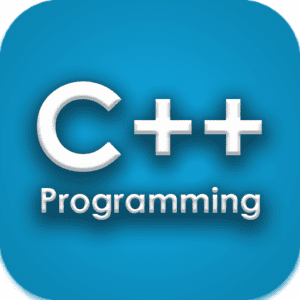
6. C++
C++ remains a cornerstone in the world of programming languages, renowned for its efficiency, performance, and versatility. Originally developed as an extension of the C language, C++ has evolved into a powerful tool for building complex and high-performance software systems. Here’s why mastering C++ can significantly enhance your programming skills and career prospects:
1. Efficiency and Performance
C++ is known for its efficiency and high performance, making it suitable for applications where speed and resource management are critical. As a compiled language, C++ allows developers to control memory allocation and optimize code for faster execution, making it ideal for systems programming, game development, embedded systems, and performance-critical applications.
2. Versatility Across Domains
C++’s versatility extends across various domains, from desktop applications and operating systems to gaming engines, real-time simulations, and high-frequency trading systems. It provides low-level control over hardware resources and system-level programming, enabling developers to build scalable and robust software solutions for diverse industries and technological platforms.
3. Object-Oriented Programming (OOP) Paradigm
C++ supports object-oriented programming (OOP), allowing developers to organize code into reusable objects that encapsulate data and behavior. OOP principles such as inheritance, polymorphism, and encapsulation promote code reusability, modularity, and maintainability, facilitating the development of complex software systems with clear structure and functionality.
4. Compatibility and Legacy Codebase
C++’s compatibility with C and its ability to interface with legacy codebases ensure backward compatibility and integration with existing systems. Many foundational libraries, frameworks, and operating systems are written in C or C++, making C++ knowledge essential for maintaining and extending legacy software infrastructure in industries like aerospace, automotive, telecommunications, and finance.
5. Graphics and Game Development
C++ is widely used in graphics programming and game development due to its low-level access to hardware and efficient performance. Game engines like Unreal Engine and Unity use C++ for core engine development, physics simulations, and rendering pipelines, enabling developers to create visually immersive and interactive gaming experiences.
6. System-level Programming and Embedded Systems
C++’s ability to interact directly with hardware and manage system resources makes it suitable for system-level programming and embedded systems development. It is used in firmware development, IoT (Internet of Things) devices, microcontrollers, and real-time operating systems (RTOS), where reliability, efficiency, and real-time responsiveness are paramount.
7. Community and Industry Adoption
C++ has a robust community of developers, contributors, and industry experts who actively contribute to its evolution and best practices. The language’s long-standing presence in industries requiring high-performance computing and system-level development underscores its enduring relevance and adoption in modern technology stacks.
8. Career Opportunities and Competitive Advantage
Proficiency in C++ opens doors to rewarding career opportunities in software engineering, systems programming, game development, embedded systems, finance, and research. Job roles such as C++ developer, software engineer, systems architect, game programmer, and firmware engineer often prioritize C++ skills, offering competitive salaries and opportunities for professional growth and specialization.
Conclusion
C++’s efficiency, performance, versatility across domains, support for OOP, compatibility with legacy systems, prominence in graphics and game development, application in system-level programming and embedded systems, strong community support, career opportunities, and competitive advantage make it an indispensable language for ambitious programmers. Whether you’re interested in building high-performance applications, developing cutting-edge technologies, or advancing your career in specialized fields, mastering C++ equips you with the tools and expertise to excel in today’s dynamic and evolving tech landscape.
7. Go
Go, also known as Golang, has rapidly gained popularity as a modern programming language designed for efficiency, simplicity, and concurrency. Developed by Google, Go combines the performance of compiled languages with the simplicity of interpreted languages, making it ideal for building scalable and reliable software systems. Here’s why mastering Go can significantly enhance your programming skills and career prospects:
1. Concurrency and Scalability
Go is designed with concurrency in mind, offering built-in support for lightweight concurrent processes called goroutines and channels for communication between them. This concurrency model simplifies the development of concurrent and parallel programs, allowing developers to leverage multicore processors efficiently. Go’s concurrency features make it well-suited for building high-performance web servers, distributed systems, and real-time applications that require handling multiple tasks simultaneously.
2. Efficiency and Performance
Go compiles directly to machine code, delivering fast execution and efficient use of system resources. Its static typing and compilation process optimize performance without sacrificing developer productivity. Go’s runtime performance competes favorably with languages like C++ and Java, making it suitable for performance-critical applications, cloud-based services, microservices architectures, and backend systems requiring rapid response times.
3. Simplicity and Readability
Go emphasizes simplicity and readability, with a clean and straightforward syntax that reduces cognitive overhead and improves code maintainability. Its minimalistic approach eliminates unnecessary features and complexity, allowing developers to focus on writing clear and concise code. Go’s standardized formatting conventions and idiomatic style guide promote consistency across projects and facilitate collaborative development.
4. Built-in Tools and Standard Library
Go includes a rich standard library that provides comprehensive packages for networking, encryption, file I/O, concurrency, and more. The standard library’s robustness reduces the need for third-party dependencies, simplifying application development and deployment. Additionally, Go comes with powerful built-in tools such as go fmt for code formatting, go vet for static analysis, and go test for automated testing, enhancing developer productivity and code quality.
5. Cross-Platform Compatibility
Go supports cross-platform development, allowing developers to build applications that run seamlessly across different operating systems, including Linux, macOS, and Windows. Its ability to compile code into standalone binaries simplifies deployment and distribution, making Go suitable for building command-line tools, server-side applications, and system utilities that require platform independence.
6. Community Support and Adoption
Go has a thriving community of developers, open-source contributors, and industry leaders who actively contribute to its growth and ecosystem. The Go community values collaboration, knowledge sharing, and continuous improvement, supporting developers through forums, conferences (e.g., GopherCon), and online resources. The language’s adoption by tech giants like Google, Dropbox, Uber, and Docker underscores its credibility and relevance in modern software development.
7. Scalable and Cloud-Native Applications
Go is well-suited for building scalable and cloud-native applications, thanks to its efficient use of resources, strong concurrency model, and support for microservices architectures. Go’s lightweight binaries and minimal runtime dependencies enable developers to create containerized applications for deployment in cloud environments, facilitating DevOps practices such as continuous integration and deployment (CI/CD).
8. Career Opportunities and Future Growth
Proficiency in Go opens doors to diverse career opportunities in software engineering, backend development, cloud infrastructure, distributed systems, and DevOps. Job roles such as Go developer, backend engineer, infrastructure architect, site reliability engineer (SRE), and cloud engineer often require Go expertise, offering competitive salaries and opportunities for career advancement in technology-driven industries.
Conclusion
Go’s focus on concurrency, efficiency, simplicity, built-in tools, cross-platform compatibility, vibrant community support, scalability for cloud-native applications, career opportunities, and future growth prospects make it a compelling language for developers seeking to innovate and excel in modern software development. Whether you’re building scalable web services, crafting microservices architectures, or advancing your career in cloud computing and distributed systems, mastering Go equips you with the skills and capabilities to thrive in today’s dynamic tech landscape.
Choosing the “best” programming language depends heavily on your specific goals, context, and preferences. Each of the reasons outlined for learning Swift has its merits, but their importance can vary depending on your individual circumstances. Here’s a brief comparison based on common considerations:
-
Modern and Intuitive Syntax: Swift’s clean and expressive syntax makes it easier to write and read code, which can enhance productivity and reduce errors.
-
Safety and Stability: Swift’s strong typing and built-in error handling contribute to safer and more stable applications, crucial for maintaining reliability.
-
Performance and Optimization: Swift is designed for high performance, making it suitable for demanding tasks like game development or computational tasks.
-
Broad Applicability: Swift’s expansion beyond iOS to macOS, watchOS, and tvOS increases its versatility and potential career opportunities within the Apple ecosystem.
-
Rich Standard Library and Frameworks: Swift’s comprehensive standard library and Apple’s frameworks provide powerful tools for app development, accelerating development time.
-
Community and Support: A supportive community and robust resources can facilitate learning and problem-solving, crucial for ongoing skill development.
-
Career Opportunities: Swift’s popularity in mobile and macOS app development can lead to diverse and rewarding career paths.
Ultimately, the “best” language depends on your specific goals and context. For mobile app development within the Apple ecosystem, Swift’s integration with iOS and macOS makes it a compelling choice. However, for other applications or platforms, different languages like Java, Python, or C++ may be more suitable. Therefore, it’s essential to consider your objectives, project requirements, and career aspirations when selecting a programming language to learn and master.
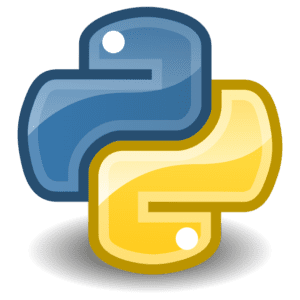

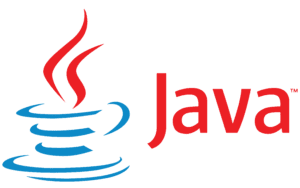
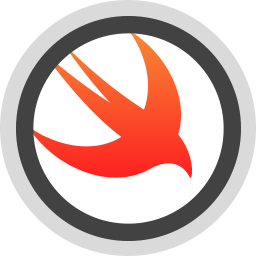






Post Comment